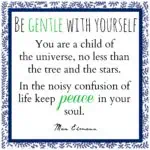Comparison is the thief of joy! Learn why we compare, the dangers of it, and strategies to end this bad habit once and for all.
“Comparison is the thief of joy” is a powerful phrase that reminds us of the consequences of comparison and how the negative thoughts in our minds can derail our contentment and joy.
This post contains affiliate links.
What is comparison? How can we identify, avoid and overcome it? With a better understanding of its power, we can fight against comparison’s stranglehold on our emotions and set ourselves on a path of joy and contentment.
Definition: What is Comparison?
Before we continue any further, let’s address what exactly comparison is.
Comparison is the act of evaluating or judging the similarities and differences between two or more items or people. It’s a natural part of the human experience and an essential component of our ability to learn. However, when left unchecked, comparison can become damaging and can lead to feelings of:
- Self-doubt
- Jealousy
- Even depression
While we all have our own interpretation of comparison, its purpose is always the same: to assess how we measure up to other people, places, or things. It can involve comparing our:
- Physical appearance
- Financial status
- Intelligence level
- Any other measure of life success
We may do this directly against another person or make internal comparisons between our current and past selves.
For example, have you ever seen someone who is thrilled with what they have until they see someone else with something different or what they think looks better? Suddenly, they’re sad and dissatisfied.
This can happen a lot with children too. A child can be perfectly happy playing with something until they see their friend or sibling playing with another toy. Suddenly, that other toy looks like a lot more fun than what they already have.
Comparison can be a helpful tool that allows us to assess our progress and set goals, but it can also become an unhealthy habit that leaves us feeling inadequate and unfulfilled.
Negative Implications of Comparison
1. Low Self-Esteem/Confidence
When we compare ourselves to others, it can lead to feelings of inferiority and undermine our self-esteem. This can be especially damaging to those already struggling with self-confidence issues. Comparing ourselves to others can also lead to unrealistic expectations and pressure since we typically only ever see the best parts of other people’s lives and never the whole picture.
This is especially true when it comes to social media, which allows us unprecedented access to other people’s lives. Comparing our reality to someone else’s highlight reel can make us feel like we’re doing worse than we really are, which can be incredibly stressful.
2. Loss of Self-Appreciation and Gratitude
Comparing your life to the lives of others can foster a sense of discontentment and make you lose sight of your unique talents and abilities. You may become too focused on what you think you’re lacking and unappreciative of the blessings you do have.
3. Discouragement and Unhappiness
Comparing yourself with other people can be discouraging and lead to feelings of sadness and hopelessness. It can feel like the death of joy. You may become dissatisfied with your situation and unable to appreciate the joys of your own life.
4. Stress and Anxiety
Comparison can lead to stress and anxiety about your own life. Constantly looking at others and comparing yourself to them can make it difficult to focus on your goals and objectives and overwhelm you. It can make you feel like you’re not doing enough or falling short somehow.
Comparison is The Thief of Joy But When?
When you compare your life to others, you’re the one who ends up feeling unhappy and dissatisfied with your life. It’s hard to feel content when you’re comparing yourself to someone who is seemingly perfect or you think is better than you in some way.
Realizing that comparison is the thief of joy is the first step towards releasing this negative behavior pattern. Here’s how to start and grow through the process:
Strategies to Overcome Comparison
Below are 12 practical strategies to help you overcome comparison and create a path of joy and contentment.
1. Identify When You’re Most Likely to Start Comparing Yourself With Others
We’ve often heard that “comparison is the thief of joy,” but when do we truly realize it? If you’re prone to comparing yourself to others, you may be more likely to do it at certain times. This means figuring out what your triggers are.
For example, if you’re feeling especially insecure, uncertain, stressed, or bored these are times when you might be more vulnerable to comparing yourself with others… especially if boredom usually leads to mindlessly scrolling on social media.
Acknowledge Your Feelings
If you’re feeling anxious or in comparison to someone else, start by acknowledging your feelings. Remind yourself that comparison is completely normal, and it’s okay to want something someone else has.
Instead of judging your feelings, allow yourself to experience the emotion and make it a point to move forward positively.
2. Use Positive Affirmations and Mantras to Boost Confidence
Create a mantra or an affirmation to recite when you feel you’re going into a negative mental space. Comparison is the thief of joy, so having a mantra to repeat to yourself whenever you feel down is a great way to shift your focus. It can be something inspirational or simply a reminder of your goals and what you want to think of instead of a comparison.
Repeat Words That Inspire You
It’s important to have words that inspire you and bring you back to your true self. This can be a simple phrase like “I am enough” or whatever resonates most with you.
3. Remember You Are Your Only Competition
Comparison often involves competing with someone else, but the only person we should try to be better than is who were were yesterday. Instead of comparing yourself to other people, try looking at how far you’ve come in your journey and the progress you’ve made.
Focus on Your Own Journey
Instead of worrying about what other people are doing, focus on your journey. Think of everything you’ve accomplished and how far you’ve come. Remind yourself that success is not a race. Celebrate your successes and be content with where you’re at in life.
4. Shift Your Focus from Others to Yourself
Everyone’s path in life is unique, and your journey is just as important. Instead of comparing yourself to others, focus on developing yourself and making your dreams (not someone else’s) come true.
Focus On What You Do Have
When you’re feeling envious of someone else’s greatness, take the time to remind yourself of your successes and accomplishments. Rather than focusing on what someone else has or what they’ve achieved, be grateful for all the blessings you have in your life.
5. Practice Self-Acceptance and Acknowledgement
Self-awareness is key to overcoming comparison. When you start comparing yourself to someone else, take the time to pause and examine your thoughts and feelings. Showing more grace for your actions will help you better understand why you are doing certain things and what your triggers are.
Ask yourself why you’re comparing and what you can do to shift your focus. Your mantra could come in very handy here.
6. Find Meaningful Ways To Express Gratitude
Expressing gratitude can be a powerful way to combat comparison. Spend time reflecting on the things in your life you are grateful for. These can be anything: from family and friends to a good job or a comfortable home.
Cultivate a Mindset of Gratitude by:
Keeping a Gratitude Journal
Keeping a gratitude journal can benefit you positively in a huge way. Writing down the things you are grateful for each day can rewire your brain, help shift your focus from comparison, and give you a sense of peace and contentment.
These are some of my favorite journals if you don’t have one yet.
Volunteering/Helping the Less Fortunate
A great way to cope with the negative pattern of comparison is to spend time helping those who are less fortunate. Seeing others who need help can really put your own life into perspective.
It can also help shift your focus from envy to sympathetic admiration and inspire you to be more grateful for your blessings. Science says that random acts of kindness increase:
- Oxytocin, the love hormone
- Your energy
- Feelings of pleasure
- Serotonin
So while you’re helping others, you’re helping yourself too.
Rewrite Your Story
How different would your experience of life be if you chose to view the “bad” things that have happened to you as blessings instead? Changing how you tell your story to yourself can drastically shift your perspective and change how you see the world.
I know this may feel easier said than done, but I promise it’s a powerful and transformative experience when you’re able to do it.
The Mindset of, “Life isn’t happening TO you. It’s happening FOR you.”
I love this quote so much: “What if life isn’t happening TO you. What if life is happening FOR you”. This is an incredible thought you can start reflecting on! Sometimes all you need is a new idea to turn the negative thought pattern of comparison around.
Remind Yourself You’re Exactly Where You’re Supposed to Be
Remember, you’re exactly where you’re supposed to be. Yes, there are hard times, struggles, and challenges, but once you decide to look at them as unexpected lessons or blessings, the whole way you approach the world changes.
You have everything you need to get to where you want to go. Comparison is the thief of joy, but you will get there as long as you’re focused and taking action. Celebrate the progress you make along the way instead of looking around and comparing yourself to others.
7. Practice Mindfulness
Practicing mindfulness can help you deal with comparison by becoming more aware of your thoughts and emotions. Mindfulness encourages individuals to be more present in the moment and focus extensively on their thoughts and feelings. This helps us be more aware of the negative feelings we experience when we compare ourselves to someone else.
With increased awareness, you can practice techniques for breaking the negative patterns of comparison, like recognizing unhelpful thoughts, challenging them, or simply re-directing their focus away from comparison and onto your own experience. Mindfulness can also increase the amount of love, understanding, and compassion you have for yourself.
8. Celebrate Social Connections with Others in Healthy Ways
It’s essential to build healthy, meaningful relationships with other people based on connection and understanding, not comparison or competition. Celebrate others’ successes and reach out to them when you need support and guidance.
Set boundaries for yourself so you can avoid comparing yourself to those in your life. Be mindful when engaging with social media so you focus on your journey, not someone else’s. Allow yourself to celebrate your success and acknowledge your achievements without feeling like it’s a competition with someone else.
9. Develop a Support System for Encouragement
Surround yourself with people who will encourage, support, and uplift you. These people will be a continual source of positivity and assist you in focusing on your path and celebrating your successes.
Having a solid support system will help you to stay determined and motivated. Family and friends can provide insight when difficult choices arise and can offer helpful advice. Find a group of people who will encourage you to strive for your goals. Everyone needs support so don’t be afraid to ask for help.
10. Embrace Challenges and Setbacks As Opportunities for Growth
It can be difficult to accept that life isn’t perfect. Even the most successful people have failed and stumbled along the way. Shame and embarrassment are normal responses to failure, but everyone experiences them.
We don’t have to let comparison be the thief of joy. It’s important to remember that failure is essential to growth and should be embraced positively. Challenges and setbacks are not only a part of life, but they are also our biggest growth opportunities.
Allow yourself to make mistakes and learn from them. Learn to identify and embrace the silver lining in hardship and realize it is only a stepping stone to something better. Life has a funny way of giving us the exact lessons we need to grow.
11. Have Compassion for Yourself as Well as Others
Compassion for yourself and others can help create an atmosphere of understanding and kindness. When we learn to love and accept ourselves, it’s easier to recognize and appreciate our qualities and successes.
Compassion helps us get a better perspective on ourselves and our life situations. It can help us focus on the positive things that make us unique instead of comparing ourselves to others. It can also foster connection and empathy with people from different backgrounds and cultures.
Remember, every person has different life experiences and circumstances.
People usually only share the good parts of their lives and the things they want others to see. There’s always so much more to the story that we don’t know about.
Have you ever been surprised to hear about a celebrity couple breaking up? They may seem so happy and devoted to each other, and then suddenly – it’s over! The change in their relationship or marital status may seem sudden to outsiders because of the image they presented, but things were probably bad for a while behind closed doors.
No one has a perfect life, no matter what their Twitter, Instagram, Tiktok, or other social media account looks like. Every time your favorite influencer turns on the camera on their laptop, you don’t see their messy desk behind it, the messy floor with the toys their kids spread all over the place, their dirty sink, or their mismatched socks.
When we can view the world compassionately and with the knowledge that we’re all imperfect people, the comparison is no longer the thief of joy or as powerful as it once was.
12. Revise Your Perspective of Comparison and Engage in Healthy Competition Where Appropriate
Comparison can be detrimental when you’re focused on the wrong people or on the wrong reasons. It can lead to envy, low self-esteem, and a lack of motivation.
Instead, approach comparison in a healthy, productive way.
- Step 1: Try to compare yourself to people who have attained a similar goal as yours and identify specific actions they have taken to reach it.
- Step 2: From there, try to break down their steps into achievable goals and break them down into small, manageable chunks.
Following the steps above, you can learn how to overcome comparison and create joy and contentment in your life. When you know your triggers and how to celebrate your successes, you can focus more on what truly matters and shift your perspective from comparison to gratitude.
Frequently Asked Questions About Comparison
1. Is comparison ever a good thing?
While there are many reasons not to compare ourselves to others, sometimes it can be good.
Comparison can help us improve by giving us a goal to strive for.
In short, comparison can be the thief of joy, but research offers suggestions for a ‘security system:’
1. Recognize that you’re likely using an unrealistic target when evaluating yourself and adjust accordingly. For instance… listing the top 7 people in a category and then comparing yourself to #7 instead of #1 made the biased comparison effect go away.
2. Consider what you’re trying to achieve when making a comparison. If you’re trying to become a better cook, comparing yourself to your most cooking-show-ready friend is only useful if you focus on the ways that you could become more like them. Do they take classes? Use fresher ingredients? Always sharpen their knives?
2) Who Used The Phrase “Comparison is The Thief of Joy” First?
There are three theories about who actually said “Comparison is the thief of joy” first.
1. Theodore Roosevelt
Many famous people have been linked with this phrase, even Mark Twain. Most sources attribute the quote to the 26th President of the USA, Theodore “Teddy” Roosevelt.
Known well for his ear-to-ear grin in every photo he’s in, the late US President is said to be the person who came up with the phrase, “Comparison is the thief of joy.”
2. John Powell
The earliest match located by QI appeared in the 1989 book “Happiness Is an Inside Job” by John Powell. This instance referred to self-contentment and not joy. Boldface added to excerpts by QI:[1]
“Why can’t you be like that. ” “Why don’t you do as well as your brother?” “If you comb your hair down, people won’t notice your big forehead. You’ll look more presentable.”
And so most of us have been taught to compare ourselves with others. And all the professionals agree: Comparison is the death of true self-contentment.”
3. The Bible
The phrase “comparison is the thief of joy” is often attributed to the teachings of the Bible too. Many interpret the quote as a warning to avoid comparing oneself to others, as it can cause feelings of discontent and envy.
The New Testament, in particular, is full of references to comparison and joy. There are multiple examples of people who have had to grapple with comparison from Rachel and Leah to Jacob and his brothers and even among Jesus’ disciples.
Apostle Paul also struggled with comparison before he had his life-altering experience on the Road to Damascus. Paul’s words during his ministry provide insight into how to confront comparison. He emphasized in his letter to the Roman church that we should consider the spiritual gifts given to us by God as individual and distinct from each other:
Having then gifts differing according to the grace that is given to us, let us use them; if prophecy, let us prophesy in proportion to our faith;
He provides a deeper understanding of comparison in this verse:
- His letter to the church of Corinth:
For we dare not class ourselves or compare ourselves with those who commend themselves. But they, measuring themselves by themselves, and comparing themselves among themselves, are not wise.
2 Corinthians 10:12
- Scripture in a letter to the church of Philippi:
Not that I speak in regard to need, for I have learned in whatever state I am, to be content: I know how to be abased, and I know how to abound. Everywhere and in all things I have learned both to be full and to be hungry, both to abound and to suffer need.
Comparison can be a destructive force in our lives, draining us of our joy and self-confidence, but there are ways to overcome comparison and cultivate a path of self-appreciation and contentment.
Acknowledge your feelings, celebrate the success of others, focus on what you have, embrace your path, and practice self-awareness. With these strategies and a little bit of effort, you can find the joy and peace that comes with contentment.
Do you have any advice about dealing with comparison? What’s the greatest lesson you’ve learned from the biggest thief of joy? Let me know in the comments below!











Leave a Comment